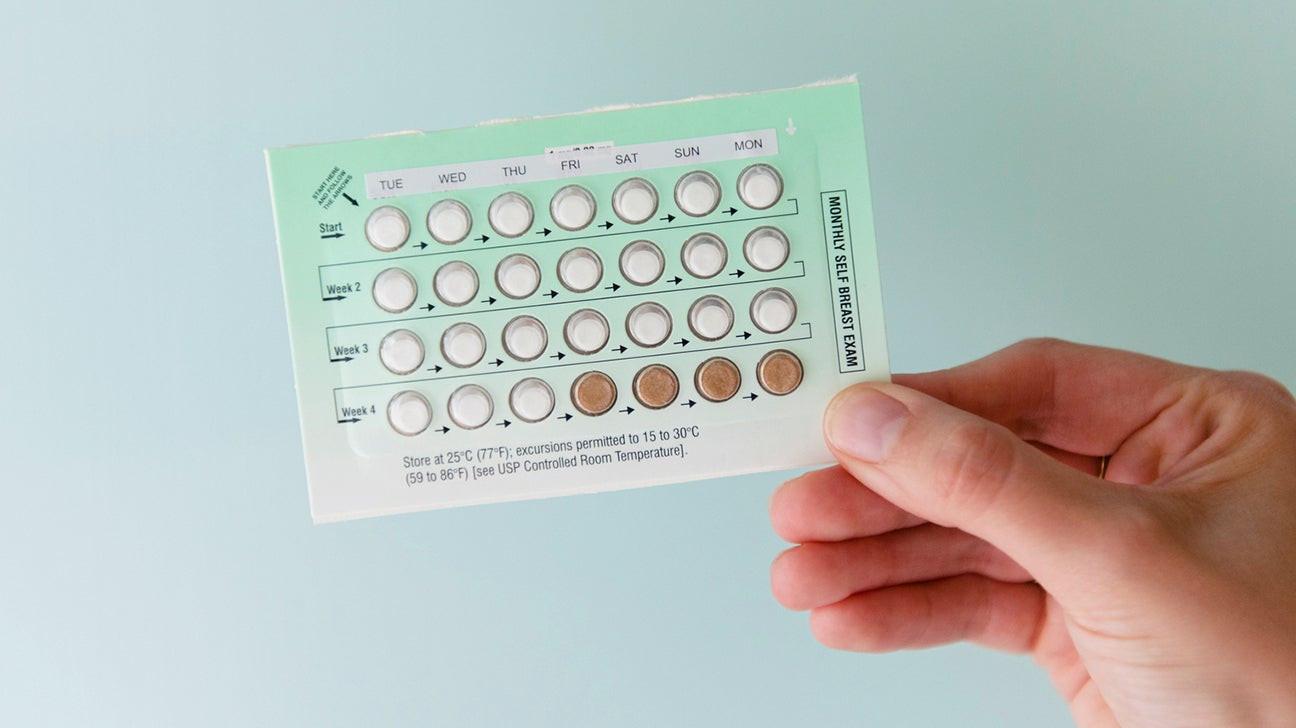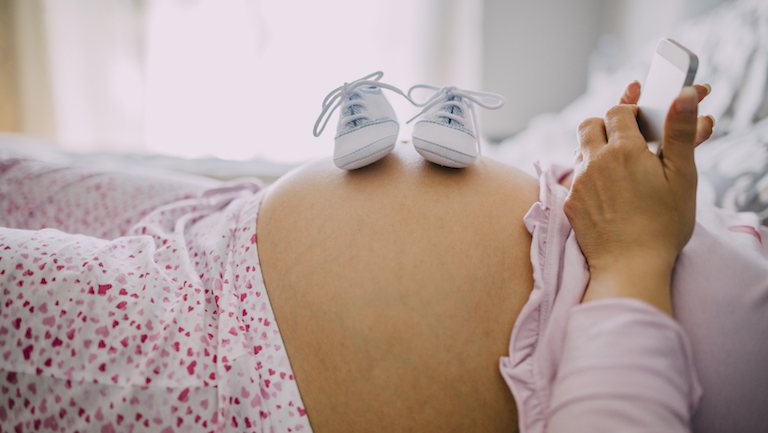Pregnancy Chances just after your period are unlikely, but it’s not impossible. A female can conceive at any time during her menstrual cycle, even during or just after her period, she can get pregnant nine days after her period.
You can get pregnant if you have sex anywhere from 5 days before ovulation until 1 day after ovulation. You can’t get pregnant if you are not ovulating because there is no egg for the sperm to fertilize. When you have a menstrual cycle without ovulating, it’s called an anovulatory cycle. There are a lot of underlying issues that can cause this. It’s a common reason for infertility.
How do you know if you’re ovulating?
Ovulation occurs when an egg is released from your ovary. It usually happens about 10 to 16 days before your period starts. It’s difficult to predict exactly when you’re ovulating because the length of your cycles can vary from month to month. Even if your menstrual cycles are the same length, you may not always ovulate on the same day.
Another sign of ovulation is that your cervical mucus, the discharge from your vagina, may be wetter, clearer, and more slippery around the time of ovulation. Your body temperature may rise slightly after ovulation. There are also ovulation predictor kits that can detect an increase in the levels of certain hormones in your urine.
The chances of getting pregnant are low right after periods compared to a few days or a week in the menstrual cycle:
- If a woman has sex without using contraception, she may get pregnant at any time during the menstrual cycle, even during or just after the period.
- There is not absolutely “safe” time of the month when a woman can have sex without contraception and not risk becoming pregnant. However, there are times in the menstrual cycle when women may be most fertile and are most likely to conceive.
- The fertile days may last for up to 3-5 days after the end of periods. The chances of getting pregnant just after the period depend on how short the menstrual cycle is and how long the period lasts. If periods are long, women may only have a few days left after the period ends before fertile days begin.
- If the menstrual cycle is short, for example, 22 days, then women could ovulate just days after the period. The longest that sperm can survive in fertile cervical mucus is 5-7 days. So, it may just be possible for women to get pregnant if they ovulate a little earlier than usual.
- A woman may also get pregnant just after a period if she has an irregular cycle.
| Table: Typical menstrual cycles and fertility at each stage | ||
| Day of cycle | Stage | Fertility |
| 1-7 | Menstruation | Least fertile stage |
| 8-9 | Post-menstruation | Possible to conceive |
| 10-14 | Days around ovulation | Most fertile |
| 15-16 | Post-ovulation | Possible to conceive |
| 17-28 | Thickening of the uterine lining | Less fertile, unlikely to conceive |
Periods and Pregnancy Chances

Unprotected sex during periods is not advisable. Having unprotected sex with unknown, whether oral or vaginal, always leads to a higher risk of infection owing to skin-to-skin genital contact. While it is often considered safe to have sex with spouse during periods, it may lead to a risk of infection due to vaginal discharge. Yeast infection is the most common infection acquired during period sex.
Implementing birth control measures, such as using a condom, may lower your chances of contracting infections and getting pregnant.
There are a few common benefits of having protected sex during periods, such as:
Period cramp relief: Since the uterus may be shedding its lining, orgasm may relieve the menstrual cramp. The uterine muscles contract and release over time, leading to less muscle tension. Also, sex leads to the release of endorphins, which helps ease body pains, headaches and discomfort.
A common myth is that a woman can’t get pregnant while on her period. This is primarily true, but there is a catch here! Very rarely, a woman can get pregnant if she has sex on the first day of the period. This may happen if she has a 20-day period cycle.
In a woman with a 20-day cycle, the egg is released around the seventh day, and the most fertile days for this woman are Days 5, 6, and 7 of the period cycle. Now, sperms can live in the woman’s reproductive tract for about six days after entry. Therefore, this means that pregnancy is possible in such cases.
Sometimes, women can bleed during ovulation (the most fertile period). This may often be mistaken as the first day of the period. Having unprotected sex during this time significantly increases the chances of becoming pregnant. The average menstrual cycle in most women is between 28 and 30 days. Young women often tend to have irregular periods; hence, it may not always be possible to accurately predict the length of the menstrual cycle or ovulation period.
Tracking the menstrual cycle can play an important role if a woman is trying to get pregnant. The woman can track her most fertile days, helping her conceive more easily. If a woman is not planning to get pregnant, it’s always advised to use protection or the morning-after pill (emergency contraception) to prevent pregnancy after unprotected intercourse.
The morning-after pill is effective up to five days after unprotected intercourse, but the sooner it’s taken, the better. Repeated consumption of the morning-after pill is not advised because it may cause hormonal imbalance in the body. These pills are available over the counter at pharmacies for those who are over 18 years. Those under 18 years need to get a prescription from a doctor.
Women who aren’t planning to get pregnant may consider taking other contraceptive measures, such as oral contraceptive pills (birth control pills) or intrauterine devices (IUDs) if the couple decides not to use condoms.
- Oral contraceptive pills and IUDs do not protect against sexually transmitted diseases (STDs) such as human immunodeficiency virus (HIV), herpes, syphilis, and gonorrhea.
- For protection against STDs, it is advised to use condoms. Consulting with a doctor regarding contraception can help choose an ideal method of contraception.
Implantation bleeding and Pregnancy Chances :max_bytes(150000):strip_icc()/94122710-AllanKosmajac-56a515ee3df78cf77286351f.jpg)
Implantation bleeding is light vaginal bleeding that sometimes occurs very early in pregnancy. If you notice spotting or light bleeding several days before your period is due, it could be implantation bleeding. Spotting has many causes, so you may wonder how to recognize implantation bleeding. Before you reach for a pregnancy test, see if your symptoms and the timing of your spotting line up.
Implantation bleeding is light vaginal bleeding that sometimes occurs very early in pregnancy.
Implantation bleeding can happen when a fertilized egg attaches, or implants, into the uterine wall. The egg attaches to the uterus anytime between 6 to 12 days after ovulation. This means if you ovulate on day 14 of your cycle, implantation could happen sometime between 17 to 26 days after the start of your last period.
As the fertilized egg settles into the uterine wall, this can cause the lining to slough off and result in spotting or light bleeding. Bleeding can also occur due to changing hormones related to early pregnancy.
Even though it’s rare, if you experience spotting a week before your period is due, you might wonder if it’s implantation bleeding. Implantation bleeding can be a very early sign that you’re pregnant.
Most common early signs and symptoms of pregnancy
Many of the signs and symptoms differ from person to person. Below are a few common signs and symptoms that may indicate early pregnancy: 
- Blood or spotting on the panty is one of the early symptoms of pregnancy. The embryo pushes itself into the wall of the uterus (or womb). This causes some light bleeding or spots of blood to appear on the panty.
- Fatigue or tiredness is a high-ranked symptom among early symptoms of pregnancy. During early pregnancy, levels of the hormone progesterone soar, which makes a patient feel sleepy or tired.
- Patients might find urinating more often than usual. The amount of blood in the body increases during pregnancy, causing kidneys to process extra fluid that ends up in the bladder.
- Vulva changes are the early signs and symptoms of pregnancy. Change in the color of the vulva and vagina happens because more blood is needed in that area to build the tissue for pregnancy.
- Breast and nipple changes are early signs of pregnancy. Hormonal changes might make breasts sensitive and sore. Nipples may become larger and darker as the pregnancy progresses. Women may also notice small, goosebumps or pimple-like white areas on their areola, which may be an early sign of pregnancy.
- Having random food cravings is one of the most common early signs and symptoms of pregnancy. It’s caused by the body’s craving for what it needs. For example, some women want combinations like fish and ice cream; this could be because the body is lacking protein and sugar.
- Missed menstrual cycle or period pain is the most common symptom of early pregnancy. If a woman has missed her period by a week or more, there is a chance that she might be pregnant.
How soon can I take a pregnancy test?
You can take a pregnancy test on the first day of a missed period.
You may take a pregnancy test as soon as you miss a period or if your period is late.
- You would know the date of your missed period if your periods were regular.
- If your periods are irregular, or you do not have periods for some reason, you can do a pregnancy test at least three weeks after having sexual intercourse.
It is recommended to take a pregnancy test as soon as possible if you miss your period or if you think you might be pregnant. Knowing about your pregnancy early helps you plan accordingly and seek the necessary care.
You must read the instructions in your test kit to know about the accuracy of the test and how and when to perform it. Some pregnancy tests claim that they can give results a few days before a missed period. The results of testing this early are often less accurate.
Certain pregnancy tests may detect pregnancy hormones as soon as 10 days after intercourse. These tests have higher chances of inaccuracy and giving false-positive or false-negative test results.
Home pregnancy tests are reliable but can occasionally give a false positive. You should perform the test again after a few days to confirm the result. Manufacturers of home test kits claim that their kits are 97% to 99% accurate which is not true, blood tests are more accurate than home pregnancy tests.
How do pregnancy tests work?
:max_bytes(150000):strip_icc()/GettyImages-958638676-57555a8853be43379895a193235432b2.jpg)
Pregnancy tests are a quick and easy means to know whether you are pregnant. Most at-home pregnancy tests work by detecting the levels of the hormone human chorionic gonadotropin (HCG) in urine.
HCG is also known as the pregnancy hormone because the levels of this hormone increase considerably when you get pregnant. This hormone is released when a fertilized egg attaches to the lining of the uterus (the endometrium). Thus, when you pee or dip the test stick into your urine, it detects whether HCG is present in your urine.
Most pregnancy tests can be taken beginning on the first day of your missed period. Because the HCG concentration increases rapidly (doubling every two to three days), taking a test early may not be accurate enough. Refer to the label instructions in your test kit to know the best time to take the test. It is generally advised to take the test first thing in the morning because during this time the urine will have the highest concentration of HCG.
Drinking a lot of water before the test may dilute the HCG levels in your urine, increasing the chance of a false-negative test result.
How accurate are home pregnancy tests?
Home pregnancy tests are quite accurate and reliable when you use them correctly. Their accuracy is similar to that of a urine pregnancy test that you get in a doctor’s office or hospital. Because these tests work by detecting the presence of human chorionic gonadotropin (HCG) hormone in your urine, their accuracy might be lower in early pregnancy or when you have just missed your period.
If your pregnancy test comes out negative but you feel that you might be pregnant, repeat the test a week after the date you missed your period. You may want to visit your healthcare provider if you are not confident about the result of your pregnancy test.
P. S: This article is only for doctors having good knowledge about Homeopathy and allopathy, for learning purpose(s).
For proper consultation and treatment, please visit our clinic.
None of above-mentioned medicine(s) is/are the full/complete treatment, but just hints for treatment; every patient has his/her own constitutional medicine.
To order medicine by courier, please send your details at WhatsApp– +923119884588
Dr. Sayyad Qaisar Ahmed (MD {Ukraine}, DHMS), Abdominal Surgeries, Oncological surgeries,  Gastroenterologist, Specialist Homeopathic Medicines.
Gastroenterologist, Specialist Homeopathic Medicines.
Senior research officer at Dnepropetrovsk state medical academy Ukraine.
Location: Al-Haytham clinic, Umer Farooq Chowk Risalpur Sadder (0923631023, 03119884588), K.P.K, Pakistan.
Find more about Dr Sayed Qaisar Ahmed at:
https://www.youtube.com/Dr Qaisar Ahmed
https://www.facebook.com/ahmed drqaisar
